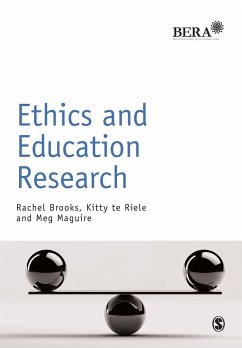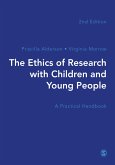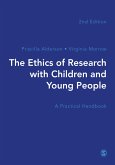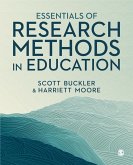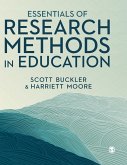Part of the popular BERA/SAGE Research Methods in Education series, this is the first book to specifically focus on the ethics of Education research. Drawn from the authors experiences in the UK, Australia and mainland Europe and with contributions from across the globe, this clear and accessible book includes a wide range of examples
The authors show how to:
identify ethical issues which may arise with any research project gain informed consent provide information in the right way to participants present and disseminate findings in line with ethical guidelines
All researchers, irrespective of whether they are postgraduate students, practising teachers or seasoned academics, will find this book extremely valuable for its rigorous and critical discussion of theory and its strong practical focus.
Rachel Brooks is Professor of Sociology and Head of the Sociology Department at the University of Surrey, UK.
Kitty te Riele is Principal Research Fellow in the Victoria Institute for Education, Diversity and Lifelong Learning, at Victoria University in Australia.
Meg Maguire is Professor of Sociology of Education at King s College London.
The authors show how to:
identify ethical issues which may arise with any research project gain informed consent provide information in the right way to participants present and disseminate findings in line with ethical guidelines
All researchers, irrespective of whether they are postgraduate students, practising teachers or seasoned academics, will find this book extremely valuable for its rigorous and critical discussion of theory and its strong practical focus.
Rachel Brooks is Professor of Sociology and Head of the Sociology Department at the University of Surrey, UK.
Kitty te Riele is Principal Research Fellow in the Victoria Institute for Education, Diversity and Lifelong Learning, at Victoria University in Australia.
Meg Maguire is Professor of Sociology of Education at King s College London.
'This book will become an indispensable resource for those engaging in research in educational institutions and with young people. It provides an even-handed discussion of the importance of ethical research while also balancing the needs of researchers and participants. More importantly, it moves well beyond an abstract discussion of ethics, by providing both novice and experienced researchers with invaluable hands-on advice on how to conduct studies that are ethical, responsible, empowering and meaningful. Anybody embarking on educational research or serving on Research Ethics Committees should read this book.'
Wolfgang Lehmann
Wolfgang Lehmann

